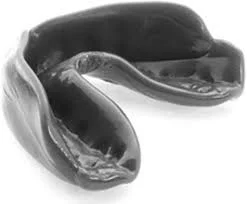Dental claims continue to be the No. 1 anesthesia-related claim reported by PPM policyholders
/Perioperative dental injuries are a known risk and complication and infrequently caused by clinical negligence. However, many patients who experience dental injury assume the anesthesia provider was negligent and should be responsible for payment for dental consultation and repair.
Identifying Patient Risk Factors
The risk is significantly greater if the patient existing periodontal disease, poor dentition, dental restorations. Other risk factors are history difficult intubation, Limited neck ROM, History of head neck surgery or abnormalities.
Avoiding Iatrogenic Causes of Dental Injury
Various anesthetic devices, especially rigid devices, can cause dental injury. The following devices are frequently associated with dental injury and should be used with caution:
Laryngoscope: Upper incisors can be damaged if force is applied to the teeth by the laryngoscope blade using the upper teeth as a fulcrum
Oropharyngeal airways: Can cause injury during extubation as the patient might involuntarily bite down on the airway and it can act as a fulcrum causing injury
Jaw clamping: Use of a jaw clamp during light anesthesia, particularly when used with an oropharyngeal airway, can put pressure on the teeth
Bite blocks: Wrong placement of bite block can cause damage to the anterior teeth
Suction devices: Dental injuries can be caused when anterior teeth are subjected to extreme lateral force
Dental props and mouth gags: Can damage teeth during insertion or removal or when they are moved from one side of the mouth to the other 4
Preanesthesia Evaluation and Documentation
The evaluation should include the patient’s dental history, oral and dental examination, and a specific discussion with the patient about any existing dental conditions that might increase the risk for dental injury. The dental examination should also include a focused assessment of the patient’s upper incisors, which are the most commonly involved teeth in dental injuries. Patients with existing dental problems should be advised that they are at increased risk for dental injury. Patients with existing bridges, caps, crowns or veneers are particularly susceptible to injuries, which frequently require expensive repairs. Removable dental work such as dentures or bridges should be removed preoperatively.
Informed Consent
Documentation of the risk of dental injury in both the preoperative notes and on the informed consent is key and helps to establish reasonable patient expectations and diminishes the perception of medical negligence.
Read More
